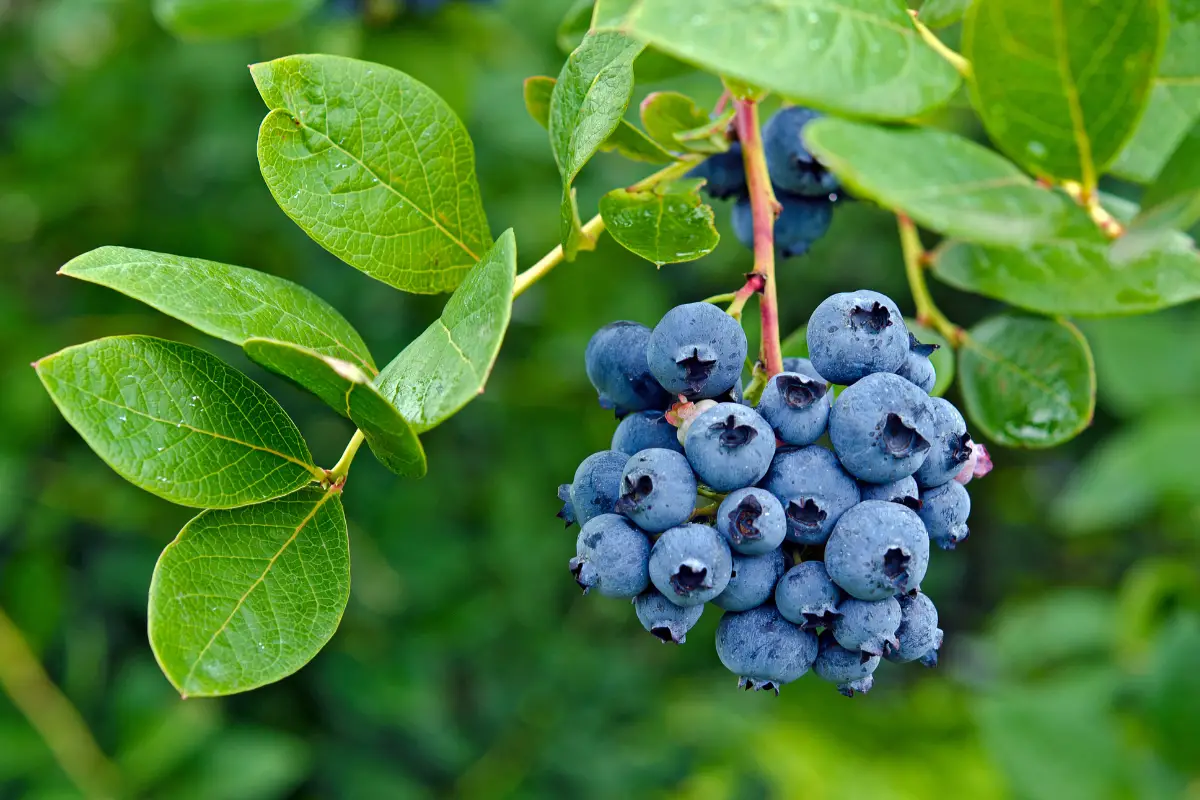Marigold plants are a favorite among gardeners for their bright colors and easy maintenance. However, these beautiful flowers are not immune to animal attacks.
Many animals are attracted to the scent of marigolds and may munch on the leaves or flowers.
Birds are one of the animals that may eat marigold plants. While most birds do not like the taste of marigolds, some birds such as blackbirds and crows may tear into the leaves to search for insects hiding inside.
Additionally, rabbits and squirrels may also nibble on the leaves of marigold plants.
Gardeners may also face attacks from pests such as slugs, caterpillars, and Japanese beetles.
These insects may eat the leaves or flowers of marigold plants, causing damage to the plant. Aphids, spider mites, and thrips may also be attracted to marigolds, causing further damage.
Understanding which animals and pests are attracted to marigolds can help gardeners take preventative measures to protect their plants.

Table of Contents
Understanding Marigolds
Marigolds are a popular choice for gardeners. These bright, cheerful flowers come in various shades of yellow, orange, and red, and they are easy to grow.
They are also known for their ability to repel insects and pests, making them a great addition to any garden. In this section, we will discuss the different varieties of marigolds and their habitat.
Marigold Varieties
There are two main types of marigolds: French marigolds and African marigolds. French marigolds are smaller and bushier, and they come in a wider range of colors.
African marigolds, on the other hand, are larger and taller, and they have bigger flowers.
Both types of marigolds are easy to grow and care for, and they are perfect for adding a pop of color to any garden.
Marigold Habitat
Marigolds are native to Mexico and South America, but they can now be found all over the world.
They prefer full sun and well-draining soil, and they can tolerate a wide range of temperatures. They are also drought-tolerant, which makes them a great choice for dry climates.
Marigolds can be grown in containers or in the ground, and they are often used as border plants or in mass plantings.
In conclusion, marigolds are a popular choice for gardeners because of their bright colors, ease of care, and insect-repelling properties.
French marigolds and African marigolds are the two main varieties, and they can be grown in a wide range of habitats.
Whether you are a novice gardener or an experienced one, marigolds are a great addition to any garden.
General Plant-Eating Animals
Marigold plants are often grown for their beautiful flowers, but unfortunately, they can also attract a variety of plant-eating animals.
In this section, we will discuss some of the most common general plant-eating animals that may feed on marigold plants.
Herbivores
Herbivores are animals that primarily feed on plants. Some of the most common herbivores that may eat marigold plants include rabbits, deer, and squirrels.
These animals may be attracted to the bright colors and fragrant scent of the marigold flowers, and may also feed on the leaves and stems of the plant.
To protect marigold plants from herbivores, gardeners may need to use physical barriers, such as fencing or netting, or apply repellents that are safe for the plants and the environment.
Some examples of natural repellents include garlic, hot pepper spray, and predator urine.
Insects
Insects are another common group of plant-eating animals that may feed on marigold plants.
Some of the most common insects that may feed on marigold plants include aphids, spider mites, thrips, and caterpillars.
These insects may cause damage to the leaves, flowers, and stems of the plant, and may also introduce diseases that can harm the plant.
To control insect infestations on marigold plants, gardeners may need to use insecticides that are safe for the plants and the environment.
Some examples of natural insecticides include neem oil, pyrethrin, and insecticidal soap.
Gardeners may also consider introducing beneficial insects, such as ladybugs and lacewings, that can prey on the harmful insects and help control their populations.
In conclusion, marigold plants may attract a variety of plant-eating animals, including herbivores and insects.
Gardeners can protect their plants from these animals by using physical barriers, natural repellents, insecticides, and beneficial insects.
Specific Animals That Eat Marigolds
Marigolds are not only beautiful, but they are also easy to grow. However, they are not immune to being eaten by animals. Here are some of the specific animals that eat marigold plants:
Rabbits
Rabbits are notorious for eating marigolds. They are attracted to the flowers and leaves of the plant, and can quickly decimate a garden.
If you live in an area with a lot of rabbits, it’s important to take measures to protect your marigolds.
One option is to use a physical barrier, such as a fence, to keep the rabbits out. Another option is to use a rabbit repellent, which can be sprayed directly on the plants.
Deer
Deer are also known to eat marigolds. They are attracted to the bright colors and sweet fragrance of the flowers.
If you live in an area with a lot of deer, it’s important to take measures to protect your marigolds. One option is to use a physical barrier, such as a fence, to keep the deer out.
Another option is to use a deer repellent, which can be sprayed directly on the plants.
Slugs and Snails
Slugs and snails are common garden pests that can eat marigolds. They are attracted to the moisture in the soil and the soft leaves of the plant.
To prevent slugs and snails from eating your marigolds, you can use a variety of methods.
One option is to handpick the slugs and snails off the plants and dispose of them.
Another option is to use a slug and snail bait, which can be sprinkled around the plants.
In conclusion, if you want to protect your marigolds from being eaten by animals, it’s important to take measures to keep them safe.
By using physical barriers, repellents, and other methods, you can ensure that your marigolds stay healthy and beautiful.
Protecting Marigolds From Animals
Marigolds are beautiful flowers that can brighten up any garden. Unfortunately, they are also a favorite snack of many animals, including rabbits, deer, and insects.
Protecting marigolds from animals is important for gardeners who want to enjoy their blooms all summer long. Here are some tips on how to keep animals away from your marigolds.
Natural Deterrents
One way to protect marigolds from animals is to use natural deterrents. Some plants, such as garlic and onions, have strong odors that animals find unpleasant.
Planting these around your marigolds can help keep animals away. Another option is to use companion planting.
Marigolds are known to repel some insects, so planting them near other plants can help protect them from pests.
Garden Planning
Another way to protect marigolds from animals is to plan your garden carefully.
If you know that deer are a problem in your area, for example, you can choose to plant marigolds in a location that is less accessible to them.
You can also use fencing or netting to keep animals out of your garden. Be sure to choose a material that is strong enough to withstand the weight of larger animals like deer.
Commercial Repellents
If natural deterrents and garden planning are not enough to keep animals away from your marigolds, you can try using commercial repellents.
These products are designed to repel specific animals, such as deer or rabbits. They come in a variety of forms, including sprays and granules.
Be sure to follow the instructions carefully and apply the repellent as directed.
In conclusion, protecting marigolds from animals is an important part of maintaining a beautiful garden.
By using natural deterrents, careful garden planning, and commercial repellents, you can keep your marigolds safe from hungry animals.
Conclusion
In conclusion, while marigolds are generally considered safe for consumption by animals, there are some species that may avoid them due to their bitter taste or strong odor.
It is important for pet owners and farmers to be aware of which animals may eat marigold plants and take appropriate measures to protect their crops and pets.
- How to Dry Basil Leaves: A Professional Guide
- Is an Avocado a Fruit or Vegetable? Simple Answer and Explanation
- Does Pineapple Have Seeds? Exploring the Anatomy of Pineapples
- Blooming Through Winter: Can I Grow Vegetables Indoors in the Winter?
- What Can You Grow in a Greenhouse All Year Round: A Guide to Year-Round Greenhouse Gardening
- Are Blueberries Blue? Debunking the Myth of Their Color















